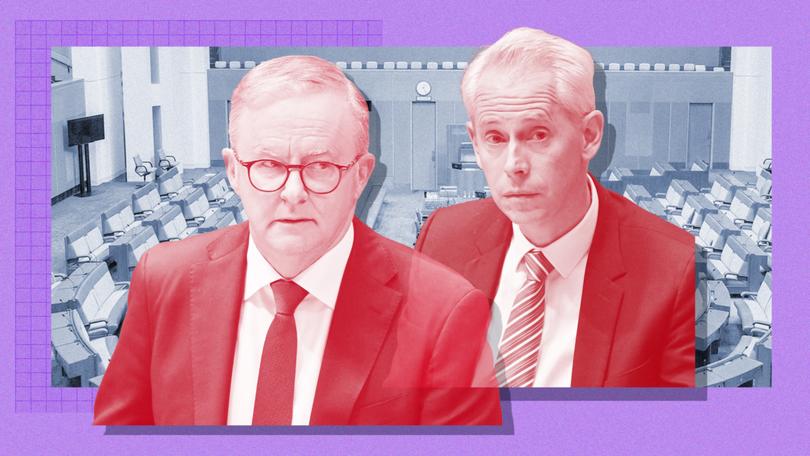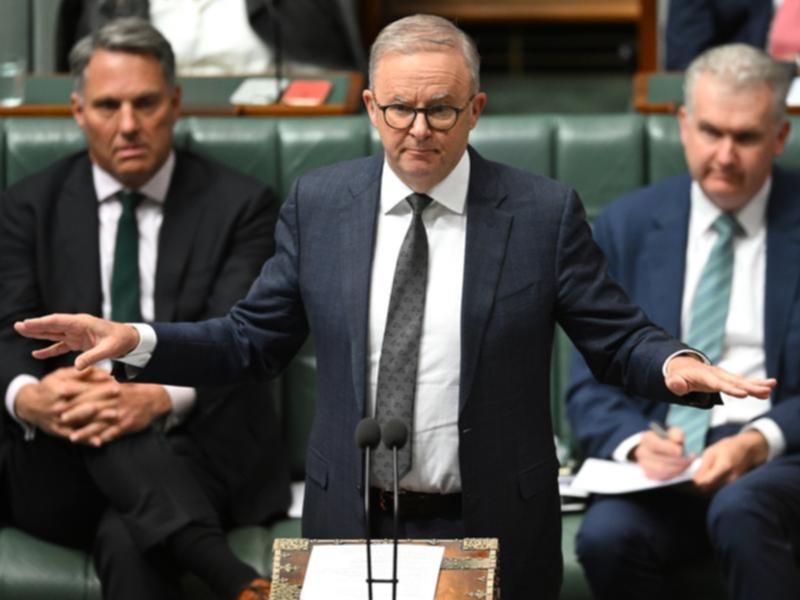MARK RILEY: Why Anthony Albanese must reshuffle his front bench before the next election
MARK RILEY: Ministerial reshuffles are like dentist visits. Put it off too long and rot sets in...

For John Howard, ministerial reshuffles were a lot like visits to the dentist.
They were uncomfortable but necessary.
If ignored, he knew that rot and decay could and most likely would set in.
Sign up to The Nightly's newsletters.
Get the first look at the digital newspaper, curated daily stories and breaking headlines delivered to your inbox.
By continuing you agree to our Terms and Privacy Policy.So, Howard did both. Regularly.
Like Anthony Albanese, he famously had all his teeth straightened in Opposition.
In the lexicon of political symbolism, there is no more searing signal of intent for future leadership.
But Howard also took the drill to his frontbench to ensure it, too, maintained its bite.
He did it a year before every election, whether he needed to or not.
Mostly, he needed to.
Reshuffles ensure the ministry remains fresh and engaged by bringing necessary change at the top.
In that sense, they can be like going to the dentist and having a polish.
But there are also occasions when reshuffles are about having a troublesome tooth pulled and replacing it with something more solid and dependable.
That’s the situation Anthony Albanese faces now with Andrew Giles.
Giles’s position is untenable. The impression is that the Government has lost control of migration.
That has been terminal for previous Labor Governments. It could be for this one.
The Government’s central narrative of economic management is strong. That is largely thanks to the work of its best performer, Treasurer Jim Chalmers.
But that narrative is being dangerously diverted by daily additions to the evolving horror story in migration.
There are other reasons why a ministerial reshuffle is now inevitable.
Reshuffles are about renewal. They are also about survival.
Politics, as this column has observed before, is a combustible mix of ego, ambition and unbridled self-belief.
Those elements exist in no greater abundance than on the Parliament’s back benches among the young and vainglorious who demand the roseate glow of their own brilliance be showcased through their immediate elevation to the front row of the big show.
And they demand it now.
If prime ministers don’t manage those explosive elements with laser-like precision they are prone to blowing up in their faces.
The reshuffles themselves need to be equally precise.
They, like many things in politics, are ruled by the Newtonian principle that for every action there is an equal and opposite reaction.
Put another way, they are like a game of cascading dominoes.
Each decision that moves or removes one minister necessitates another to fill that space and then another to fill the space that leaves and so on and so forth until all the dominoes are settled in place.
Anthony Albanese conceded last Saturday on political veteran Mark Kenny’s excellent “Democracy Sausage” podcast that he will have to reshuffle his front bench: “You know, at some stage if we are re-elected — or perhaps even before.”
The subsequent events of this week have deleted the “perhaps” from that, with Andrew Giles’s misdirection of Direction 99 the latest addition to his ministerial bungle-a-thon.

Albanese will reshuffle his front bench before the next election.
That is for certain.
He should do it in the July winter recess.
His inclination will be to hold on until later in the year. The traditional time would be during the Christmas break.
But realpolitik is likely to intervene. I believe the inevitability of Giles’s position will force him to go earlier.
During his discussion with Kenny, Albanese boasted of the stability he has been able to maintain as Prime Minister.
“I can’t recall any new government having this same ministry in place two years after they were appointed,” he said.
He noted that not even Tony Abbott had achieved such a feat.
Abbott had publicly expressed his determination to impose stability for as long as he could to produce the impression of internal harmony, even if it was a mere affectation.
But look at how that worked out.
Abbott had to reshuffle his ministry within 18 months and didn’t get time to enforce a second planned reshuffle before Malcolm Turnbull unseated him as prime minister.
At the risk of stating the bleedingly obvious, Albanese would do well in his current circumstances to use Howard as his guide and not Abbott.
A reshuffle wouldn’t be a sign of weakness or failure. If managed correctly it would signify strong and pragmatic leadership.
It won’t be easy. However, as is often the case with root canal surgery, it will be necessary.

